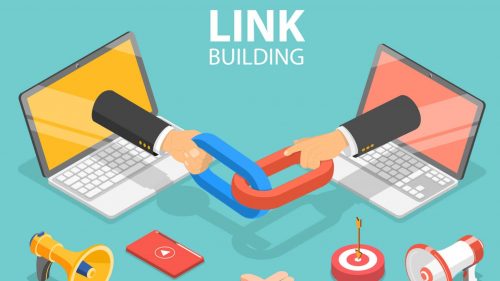B2B e-commerce has experienced significant growth, transforming the way businesses conduct transactions. Unlike its B2C counterpart, B2B e-commerce involves selling products or services between businesses rather than directly to consumers. Personalization plays a crucial role in shaping the customer experience within this dynamic landscape.
Businesses can foster stronger relationships and drive customer loyalty by tailoring interactions to individual preferences and needs. This blog will explore the intersection of B2B e-commerce and personalization, uncovering strategies to enhance the customer experience.
Understanding B2B Ecommerce
B2B ecommerce, or business-to-business ecommerce, refers to the online buying and selling of products or services between businesses. It involves digital transactions conducted through dedicated B2B platforms or websites. Key characteristics of B2B ecommerce include larger order volumes, complex pricing structures, and the presence of negotiated contracts.
Unlike B2C ecommerce, where transactions are typically focused on individual consumers, B2B ecommerce caters to the unique needs of businesses, such as procurement departments, wholesalers, and manufacturers.
When comparing B2B and B2C ecommerce, several distinctions become apparent. B2B transactions often involve longer sales cycles due to the purchasing process’s complexity and multiple decision-makers’ involvement. Additionally, B2B customers tend to place larger orders and require customization options tailored to their specific business requirements. B2B ecommerce platforms also provide features like bulk ordering, integrated inventory management, and sophisticated payment options to accommodate the unique needs of businesses.
B2B ecommerce is experiencing significant growth and evolving trends. According to industry reports, B2B ecommerce sales are projected to reach trillions of dollars in the coming years, surpassing B2C sales. Moreover, it will improve things for everyone involved, from Custom B2B eCommerce solutions providers to companies and customers. This shift is driven by increasing digitalization, the need for streamlined procurement processes, and the desire for cost and time efficiencies.
Additionally, B2B buyers now expect the convenience and flexibility provided by B2C ecommerce personalization experiences, leading to the adoption of customer-centric practices in B2B transactions.
The Significance of Personalization in B2B
Personalization holds immense significance in the B2B context, as it enables businesses to create tailored experiences that cater to individual customers’ unique needs and preferences. In the B2B space, personalization goes beyond simply addressing a customer by name; it involves understanding their specific challenges, pain points, and goals. Therefore, a B2B eCommerce development company can help businesses in order to grow and understand the challenges that customers are facing.
By personalizing the customer experience, businesses can establish deeper connections, foster trust, and differentiate themselves from competitors. In addition, it allows companies to deliver relevant solutions, anticipate customer needs, and provide a seamless buying journey. As a result, personalization is crucial in enhancing customer satisfaction and increasing the likelihood of repeat business.
One of the key benefits of personalization in B2B e-commerce is the ability to address customers’ specific pain points. By understanding their challenges and offering tailored solutions, businesses can become trusted partners rather than just IT service provider company
Personalization also enables businesses to streamline purchasing, making it more efficient and convenient for customers. In addition, it eliminates unnecessary steps, reduces friction, and saves time, ultimately increasing customer satisfaction.
Moreover, personalization has a direct impact on customer loyalty. When businesses tailor their offerings and interactions to individual customers, they demonstrate a commitment to meeting their unique needs. This fosters a sense of loyalty and strengthens the business relationship over time. Personalization also encourages repeat business, as customers are more likely to return to a vendor that understands their preferences and consistently provides a personalized experience.
Collecting and Utilizing Customer Data
Data plays a pivotal role in personalization efforts within B2B ecommerce. It provides valuable insights into customers’ preferences, behaviors, and buying patterns, enabling businesses to tailor their offerings and interactions accordingly. As a result, data allows companies to move beyond generic approaches and deliver highly relevant and personalized experiences.
Businesses can employ various strategies to collect customer data in B2B ecommerce. One effective method is leveraging online forms and registration processes to gather information about customers’ industries, company sizes, roles, and specific needs.
Additionally, tracking website interactions, such as pages visited, products viewed, and search queries, provides valuable behavioral data. Analyzing order histories and customer feedback is another way to gain insights into individual preferences and purchasing patterns. Finally, utilizing customer surveys and feedback mechanisms further helps in gathering direct insights into customer needs and expectations.
While collecting customer data is crucial, addressing ethical considerations and data privacy concerns is equally important. Businesses must ensure they comply with relevant regulations and obtain proper consent for data collection.
In addition, theyIn addition, they should clearly communicate their data usage and protection policies to customers, emphasizing transparency and security. Maintaining customer trust is essential to safeguard customer data through robust security measures, encrypted transactions, and secure storage systems. Prioritizing data privacy not only protects customers but also strengthens the credibility and reputation of the business.
Segmenting Your Customer Base
Segmenting customers is vital for effective personalization in B2B e-commerce. It involves dividing the customer base into distinct groups based on shared characteristics, needs, or behaviors. By segmenting, businesses can better understand their customers and tailor their marketing, messaging, and offerings to meet their specific requirements.
Segmentation allows businesses to target their resources more effectively, as different customer segments may have unique pain points and priorities. For example, segmenting customers based on industry verticals or company sizes enables businesses to craft tailored solutions and messaging that resonates with each segment’s specific challenges and goals.
In B2B e-commerce, there are various criteria for segmenting customers. These include industry type, company size, geographical location, purchasing frequency, product preferences, and customer lifecycle stages. The segmentation criteria should align with the business’s objectives and the insights they aim to gain.
Businesses can employ a range of tools and techniques to segment customers effectively. These can include customer relationship management (CRM) systems, which centralize customer data and enable segmentation based on various attributes. Data analytics platforms and algorithms can also help identify patterns and trends within customer data to inform segmentation strategies. Customer surveys and feedback mechanisms also provide valuable information for creating meaningful customer segments.
By segmenting their customer base, businesses can customize their marketing messages, develop targeted campaigns, and provide personalized recommendations, ultimately enhancing the customer experience and driving higher conversion rates.
Customizing Product Recommendations and Content

Personalized product recommendations hold significant power in B2B e-commerce. By suggesting relevant products or services based on individual customer preferences, businesses can enhance the customer experience, increase sales, and foster customer loyalty.
Personalized recommendations take into account factors such as past purchase history, browsing behavior, and demographic information. By analyzing this data, businesses can identify patterns and make informed suggestions that align with each customer’s needs and interests. As a result, these recommendations save customers time by presenting them with the most relevant options and exposing them to products or services they may not have otherwise considered.
To generate personalized recommendations, businesses can utilize various techniques. Collaborative filtering algorithms analyze customer behavior and compare it with similar customers to identify patterns and make recommendations. Content-based filtering considers the attributes of products or services and matches them to customer preferences. Hybrid approaches that combine both techniques offer a more comprehensive and accurate recommendation system.
In addition to product recommendations, tailoring content to meet individual customer needs is essential. This involves customizing marketing messages, website content, and communication materials to resonate with each customer segment. Businesses can effectively engage customers and drive conversions by addressing specific pain points, providing relevant information, and highlighting benefits.
Enhancing the Ordering Process
Streamlining the ordering process is crucial for providing a seamless and personalized experience in B2B e-commerce. Therefore, businesses should aim to make the process as efficient and convenient as possible for each customer.
One way to enhance the ordering process is by implementing self-service tools and features. By offering customers the ability to manage their orders, track shipments, and access order history through a user-friendly online portal, businesses empower customers to take control of their purchasing journey. In addition, self-service tools reduce the need for manual assistance, save time, and allow customers to place orders at their convenience.
Another aspect of enhancing the ordering process is offering customized pricing and payment options. For example, B2B transactions often involve negotiated pricing based on volume, contract terms, or customer loyalty. Individualized pricing based on customer-specific agreements ensures a personalized experience and reinforces the business relationship.
Furthermore, businesses can offer a variety of payment options to cater to customer preferences. This may include credit cards, electronic funds transfers, purchase orders, or installment plans. By accommodating different payment methods, businesses can ease the ordering process and provide convenience and flexibility to customers.
By streamlining the ordering process, implementing self-service tools, and offering customized pricing and payment options, businesses can simplify the customer journey, save time, and increase customer satisfaction. In addition, these enhancements contribute to a personalized experience that aligns with individual customer needs and preferences.
Providing Personalized Customer Support
Personalized customer support is vital in B2B e-commerce, allowing businesses to address individual customer needs, provide tailored solutions, and build strong relationships. In the B2B context, where transactions are often complex and involve multiple stakeholders, personalized customer support is crucial for delivering exceptional service.
Businesses demonstrate their commitment to understanding and resolving specific customer challenges by offering personalized support. Personalized interactions create a sense of trust and reassurance, assuring customers that their unique needs are understood and valued. This level of attention and care fosters customer loyalty and encourages long-term business partnerships.
Utilizing chatbots and AI technologies can significantly enhance personalized customer support in B2B e-commerce. Chatbots can handle routine inquiries and provide instant responses, freeing up human customer service representatives to focus on more complex issues. In addition, AI-powered chatbots can be programmed to understand customer preferences, historical interactions, and buying patterns, allowing for personalized and contextually relevant responses. This level of personalization ensures that customers receive timely and accurate support.
However, it is essential to strike a balance between automation and human touch. While AI technologies can streamline customer support, human representatives are still invaluable for complex problem-solving and building emotional connections. Therefore, training customer service representatives to deliver personalized interactions is crucial. They should have the necessary knowledge, communication skills, and empathy to understand customer needs, provide tailored solutions, and create a positive customer experience.
Measuring the Success of Personalization Efforts
Measuring the success of personalization efforts is crucial for businesses to understand the impact of their strategies and make informed decisions for ongoing optimization. Tracking key metrics allows businesses to gauge personalization’s effectiveness and identify improvement areas.
One important metric to track is the conversion rate. By comparing the conversion rates of personalized experiences with generic ones, businesses can assess the impact of personalization on driving customer actions, such as completing a purchase or filling out a form. Additionally, tracking metrics like average order value, customer lifetime value, and repeat purchase rate can provide insights into the financial impact of personalization efforts.
Analyzing customer feedback and satisfaction is another valuable measure of personalization success. Monitoring customer surveys, reviews, and ratings within the Customer feedback app allows businesses to gauge customer sentiment. In addition, customer feedback provides invaluable insights into areas where personalization can be refined and improved.
Iterating and optimizing personalization strategies is an essential step in maximizing their effectiveness. By continuously monitoring and analyzing metrics and customer feedback, businesses can identify patterns, test new approaches, and refine their personalization strategies over time. A data-driven approach enables businesses to make data-backed decisions and iterate on their personalization efforts to achieve better results.
Conclusion
Personalization is of utmost importance in the B2B e-commerce landscape. It allows businesses to meet the unique needs of individual customers, foster loyalty, and drive repeat business. Invest in personalization strategies to create tailored experiences and gain a competitive edge.
As technology advances, the future of B2B E-commerce and personalization holds great promise. With AI, automation, and data analytics advancements, businesses can expect even more sophisticated personalization capabilities. Embracing this future and staying ahead of evolving customer expectations will be key to thriving in the dynamic world of B2B e-commerce.
Additionally, integrating mobile commerce into B2B strategies can unlock a range of M-commerce advantages. M-commerce offers mobile accessibility, enhanced productivity, real-time communication, geolocation capabilities, quick reordering, mobile payment options, improved efficiency, enhanced customer experience, data-driven insights, and competitive advantage. By incorporating m-commerce into their B2B ecommerce approach, businesses can provide a seamless and personalized buying experience, cater to mobile-savvy buyers, and gain an edge in the evolving digital marketplace.









